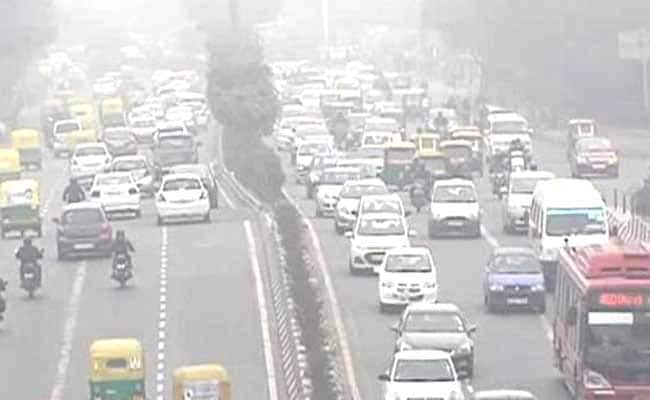
Delhi Government has asked people to follow the odd-even rule for driving their cars from the New Year.
New Delhi:
The visiting science minister of the United Kingdom, Jo Johnson, has endorsed the plan of the Delhi government to restrict traffic flow. "Systems of rationing traffic flow are common throughout the world, so India is not doing something that is totally unheard of," he told NDTV.
The Delhi government, as part of a radical plan to bring down pollution levels that have gone beyond critical levels in Delhi, has asked people to follow the odd-even rule for driving their cars from the New Year.
Mr Johnson said, "We have a different system called congestion charging as a way of rationing traffic flow."
Introduced in 2003, central London has a clearly marked out 'congestion charge zone' and most vehicles entering it pay a hefty 11.50 pounds congestion tax per day.
With a population of over eight million, London collected 2.6 billion pounds as congestion charge in the first decade. Of this, about one billion pounds were invested in upgrading the bus infrastructure in London. The 'congestion charge' is collected from 7 am to 6 pm on weekdays.
Could this be a better alternative to controlling traffic for limiting air pollution as compared to the 'odd and even' number system that Delhi is trying to implement from January 1? The London model imposes a charge only on those who want to use their vehicles rather than a forced parking of a vehicle on certain days; it could also fund the upgradation of Delhi's transport infra-structure.
On being asked what he felt about the air pollution in New Delhi, Mr Johnson said, "This is a difficult season and weather conditions contribute to perceptions of air quality of India." Mr Johnson was stationed in New Delhi from 2005 to 2008.
He said the UK government is also willing to work with India in helping contain the poor air quality. "The UK meteorological office has world class expertise in air quality monitoring and some of that could be extended to India as part of the collaborative program," Mr Johnson said.
The Delhi government, as part of a radical plan to bring down pollution levels that have gone beyond critical levels in Delhi, has asked people to follow the odd-even rule for driving their cars from the New Year.
Mr Johnson said, "We have a different system called congestion charging as a way of rationing traffic flow."
Introduced in 2003, central London has a clearly marked out 'congestion charge zone' and most vehicles entering it pay a hefty 11.50 pounds congestion tax per day.
With a population of over eight million, London collected 2.6 billion pounds as congestion charge in the first decade. Of this, about one billion pounds were invested in upgrading the bus infrastructure in London. The 'congestion charge' is collected from 7 am to 6 pm on weekdays.
Could this be a better alternative to controlling traffic for limiting air pollution as compared to the 'odd and even' number system that Delhi is trying to implement from January 1? The London model imposes a charge only on those who want to use their vehicles rather than a forced parking of a vehicle on certain days; it could also fund the upgradation of Delhi's transport infra-structure.
On being asked what he felt about the air pollution in New Delhi, Mr Johnson said, "This is a difficult season and weather conditions contribute to perceptions of air quality of India." Mr Johnson was stationed in New Delhi from 2005 to 2008.
He said the UK government is also willing to work with India in helping contain the poor air quality. "The UK meteorological office has world class expertise in air quality monitoring and some of that could be extended to India as part of the collaborative program," Mr Johnson said.
Track Latest News Live on NDTV.com and get news updates from India and around the world

